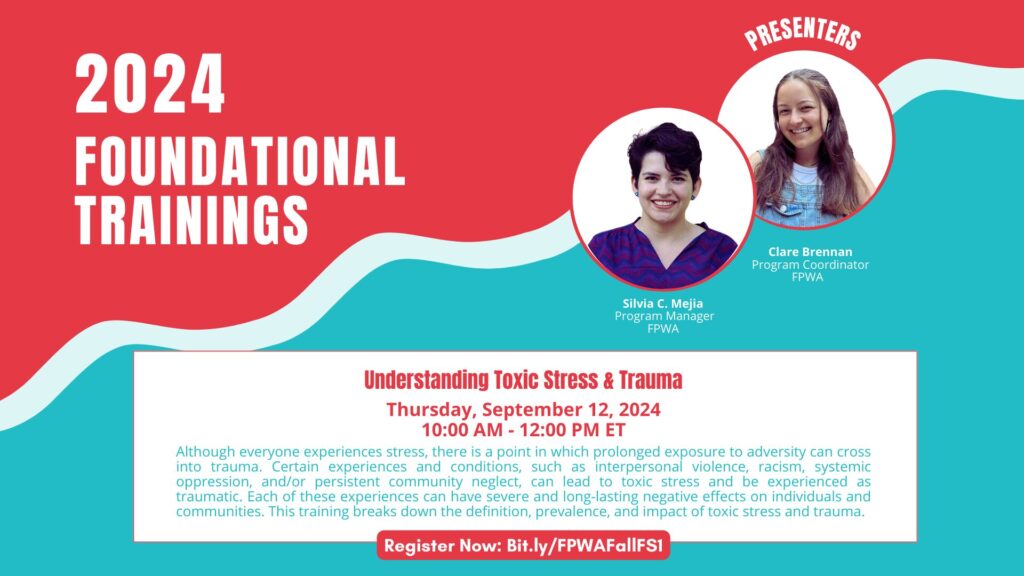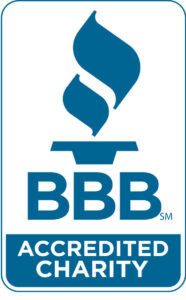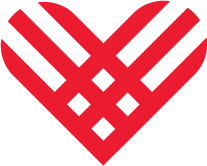Although everyone experiences stress, there is a point in which prolonged exposure to adversity can cross into trauma. Certain experiences and conditions, such as interpersonal violence, racism, systemic oppression, and/or persistent community neglect, can lead to toxic stress and be experienced as traumatic. Each of these experiences can have severe and long-lasting negative effects on individuals and communities. This training breaks down the definition, prevalence, and impact of toxic stress and trauma.
Register here
Presenters’ Biographies
Clare Brennan Program Coordinator, FPWA
As a Program Coordinator, Clare Brennan brings her experience and passion for community organizing and social justice to FPWA’s capacity building efforts. She works to strengthen New York’s social services sector with a focus on people-centered, trauma-informed care. She believes this to be a necessary approach in providing holistic care to individuals while recognizing and disrupting cycles of systemic oppression. Before joining FPWA, Clare worked in direct service supporting individuals navigating New York City’s criminal legal system. Prior to that, she worked with several nonprofits with missions ranging from adult immigrant education to criminal justice policy reform. Understanding both the importance and the challenges of direct service, she’s excited to support and be in community with the people who carry out this work.
Silvia C. Mejia Program Manager, FPWA
As Program Manager at FPWA, Silvia works to develop impactful training programs to support human service agencies in New York City. She co-designs educational resources to ensure the implementation of trauma-informed practices. Silvia also delivers specialized sessions and leads program-to-policy conversations. Prior to joining FPWA, she worked as a healthcare chaplain, she provided spiritual counseling to patients and their families, facilitated support groups and advocated for equity. She is passionate about continuing to build a justice-centered human services sector.





